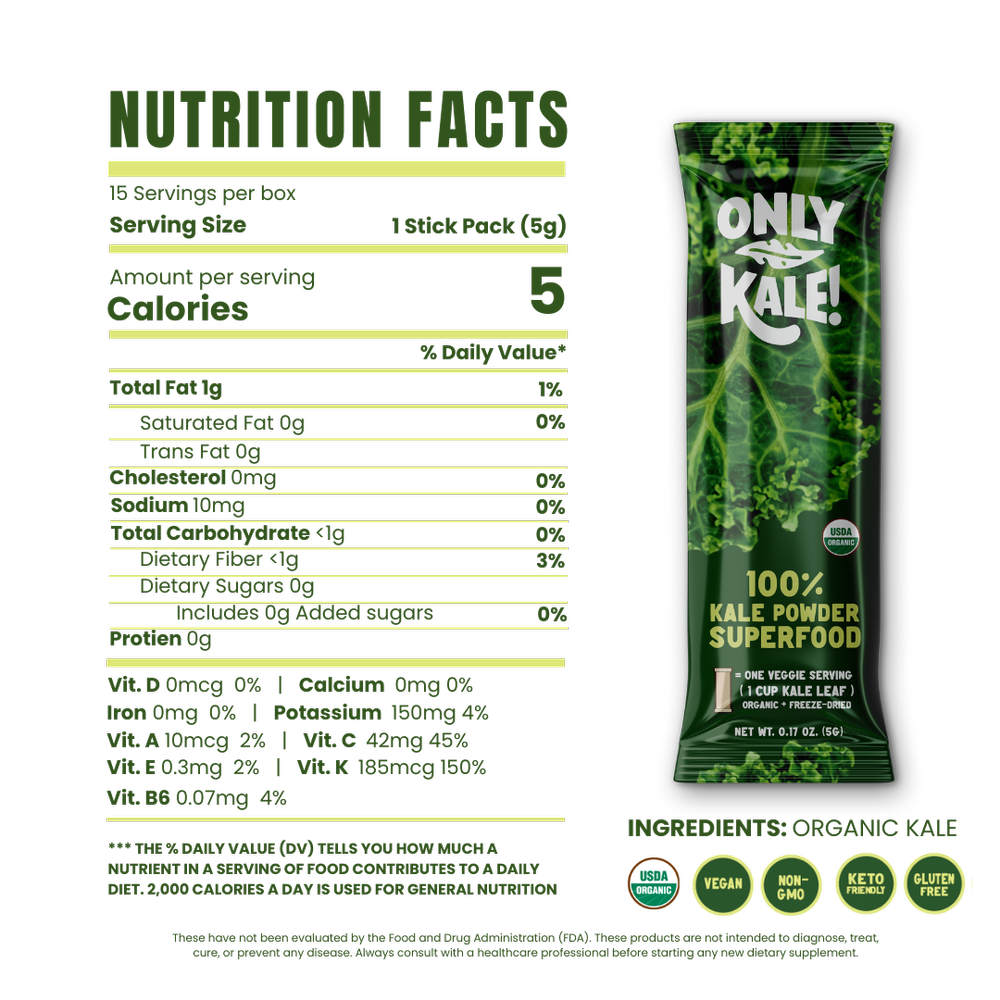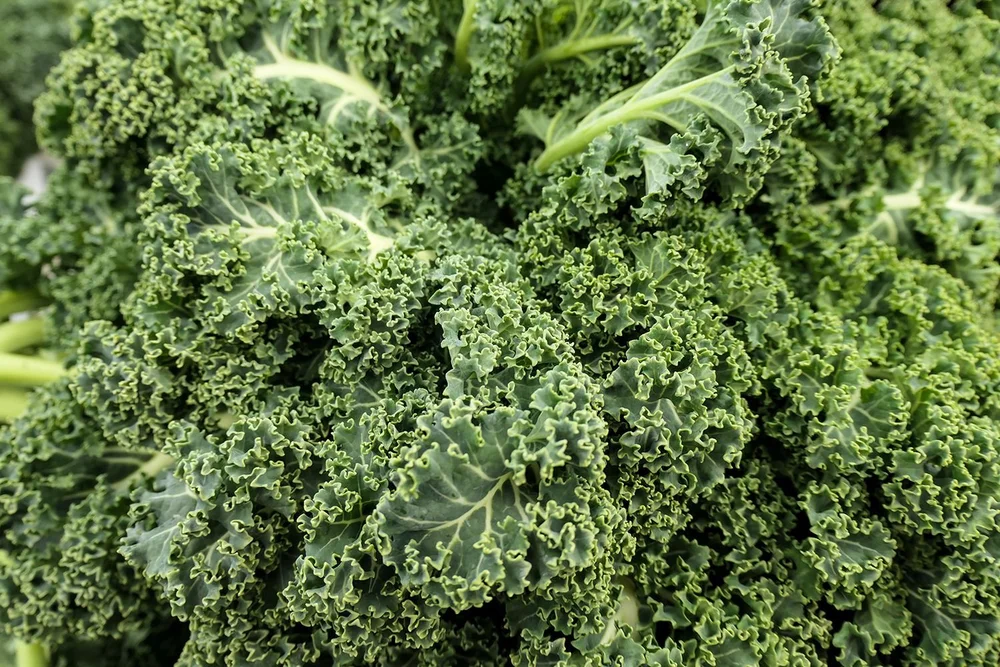One of the most nutrient-dense foods on the planet — and we put it in a stick pack.
Each OnlyKale stick delivers these percentages of your daily recommended intake.
Critical for blood clotting and bone metabolism. A single OnlyKale stick delivers 150% of your daily Vitamin K need.
Nearly half your daily Vitamin C in a single stick. Powers collagen production, boosts immune defense, and acts as a potent antioxidant.
150mg of potassium per serving. Supports heart rhythm, blood pressure regulation, and fluid balance — in every convenient stick.
Calcium: Cup for cup, kale contains more calcium than milk. Essential for bone density, muscle function, and nerve signaling.
Iron: Critical for oxygen transport in blood. Kale contains more iron per calorie than beef — and in a form your body absorbs well with vitamin C.
Potassium: Supports heart rhythm, blood pressure regulation, and fluid balance. Most Americans don't get enough — kale helps close the gap.
Magnesium: Involved in 300+ enzyme reactions. Supports energy, sleep, and muscle recovery.

Kale contains some of the most powerful antioxidants found in nature.
A flavonoid with powerful anti-inflammatory and antiviral properties. Studies show it may help lower blood pressure and protect against heart disease.
Linked to reduced cancer risk and anti-inflammatory effects. Kaempferol in kale has been extensively studied for its protective properties.
Carotenoids that accumulate in the retina and protect against age-related macular degeneration — the leading cause of vision loss.

Kale is rich in dietary fiber — essential for healthy digestion, regular bowel movements, and feeding the beneficial bacteria in your gut microbiome.
The combination of vitamin C, beta-carotene, and antioxidants creates a powerful immune support system — helping your body fight off infections and recover faster.
Unlike synthetic supplements, the nutrients in kale work synergistically — meaning they're more effective together than in isolation.
One stick. One ingredient. Every vitamin and mineral your body craves.
Shop Now